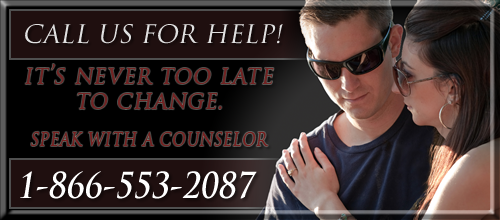About Drug Addiction
- Teen Drug Addiction
- Understanding Drug Addiction
- Effects of Drug Addiction
- Dangers of Drug Addiction
- Stages of Drug Addiction
- Signs of Drug Addiction
- Drug Addiction Withdrawal
- Drug Addiction Relapse
- Drug Addiction Facts
- Drug Addiction Overdose
- Drug Addiction Help
- Drug Addiction Intervention
- Drug Addiction Detox
- Drug Addiction Treatment
- Drug Addiction Rehab
- Drug Addiction Counseling
- What is a Drug Addict
- Drug Addiction Information
- Drug Addiction Statistics
- Drug Addiction Testing

Signs of Drug Addiction
 There are no hard and fast rules when it comes to spotting the signs of drug addiction. The main thing to look for is changes in behavior, attitude, appearance, friends, or activities. People who have a problem with drug addiction are often trying to self-medicate or find escape from the issues that are really bothering them.
There are no hard and fast rules when it comes to spotting the signs of drug addiction. The main thing to look for is changes in behavior, attitude, appearance, friends, or activities. People who have a problem with drug addiction are often trying to self-medicate or find escape from the issues that are really bothering them.
In all instances of drug addiction, watch for a tendency on the part of the abuser to refrain and shun conversation and face-to-face meetings with others. You are watching for behavior that represents a somewhat dramatic change in character from previous experience. The signs of drug addiction can be and will be explained away by the person using the drugs.
Top questions to assess a loved one’s signs of drug addiction
- Are their hands cold and sweaty?
- Are their pupils dilated?
- Are they eating properly?
- Are they hyper?
- Are they slowing down?
- Do their eyes appear red?
- Do they have a blank stare?
- Do they have the shakes?
- Do they talk a million miles a hour? Do they slur their words?
- Has their appearance changed; they don't care how they look?
- Has their coloring changed, become flushed or pale?
- Has their physical coordination changed? Are they staggering?
- Have their sleep habits changed? Are they always tired?
- Have they become lazy?
- Have they lost weight, or have they gained weight?
- Have they missed a lot of school, or work?
- Have you seen drug paraphernalia?
- Have you seen needle marks on their arms or legs?
- Have you smelled something on their breath, or their clothing?
- Is their face puffy?
This list is by no means an exhaustive list of the signs of drug addiction, and even if they/you have these drug addiction signs, it doesn't necessarily mean a person is addicted. Try to avoid being judgmental or jumping to conclusions. But also don't deny what is right in front of you. Keep in mind that many of the signs listed above may also be the result of stress, depression, or other problems. Whatever the cause, these symptoms and signs of drug addiction may warrant attention, especially if they persist or if several of them are taking place at once. Consult a trusted professional to identify the best way to address these signs.
It is important to remember that getting help early on can help your loved one to get back on track and develop more effective coping skills, often preventing further drug addiction problems. Different drugs produce different signs of drug addiction resulting in slight variations in outward indications. Some signs and symptoms are specific to opiates and narcotics which are very different than the signs of stimulant use such as cocaine or meth.
Specific signs of drug addiction:
Marijuana: Glassy, red eyes; loud talking and inappropriate laughter followed by sleepiness; a sweet burnt scent; loss of interest and motivation; weight gain or loss.
Alcohol: Clumsiness; difficulty walking; slurred speech; sleepiness; poor judgment; dilated pupils; possession of a false ID card.
Depressants: (including barbiturates and tranquilizers) Seems drunk as if from alcohol but without the associated odor of alcohol; difficulty concentrating; clumsiness; poor judgment; slurred speech; sleepiness; and contracted pupils.
Stimulants: Hyperactivity; euphoria; irritability; anxiety; excessive talking followed by depression or excessive sleeping at odd times; may go long periods of time without eating or sleeping; dilated pupils; weight loss; dry mouth and nose.
Inhalants: (Glues, aerosols, and vapors ) Watery eyes; impaired vision, memory and thought; secretions from the nose or rashes around the nose and mouth; headaches and nausea; appearance of intoxication; drowsiness; poor muscle control; changes in appetite; anxiety; irritability; an unusual number of spray cans in the trash.
Hallucinogens: Dilated pupils; bizarre and irrational behavior including paranoia, aggression, hallucinations; mood swings; detachment from people; absorption with self or other objects, slurred speech; confusion.
Heroin: Needle marks; sleeping at unusual times; sweating; vomiting; coughing and sniffling; twitching; loss of appetite; contracted pupils; no response of pupils to light.
Drug Addiction
- Alcohol Addiction
- Adderall Addiction
- Ativan Addiction
- Cocaine Addiction
- Crack Addiction
- Ecstasy Addiction
- Heroin Addiction
- Lortab Addiction
- Marijuana Addiction
- Meth Addiction
- Methadone Addiction
- Morphine Addiction
- OxyContin Addiction
- Percocet Addiction
- Ritalin Addiction
- Vicodin Addiction
- Xanax Addiction
